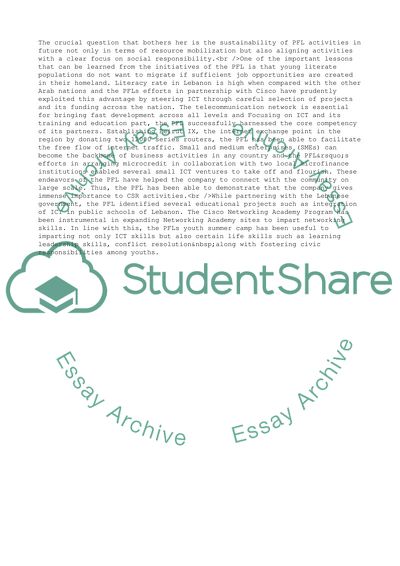Cite this document
(Lebanon and Cisco Systems Essay Example | Topics and Well Written Essays - 1500 words, n.d.)
Lebanon and Cisco Systems Essay Example | Topics and Well Written Essays - 1500 words. https://studentshare.org/business/1834448-lebanon-and-cisco-systems
Lebanon and Cisco Systems Essay Example | Topics and Well Written Essays - 1500 words. https://studentshare.org/business/1834448-lebanon-and-cisco-systems
(Lebanon and Cisco Systems Essay Example | Topics and Well Written Essays - 1500 Words)
Lebanon and Cisco Systems Essay Example | Topics and Well Written Essays - 1500 Words. https://studentshare.org/business/1834448-lebanon-and-cisco-systems.
Lebanon and Cisco Systems Essay Example | Topics and Well Written Essays - 1500 Words. https://studentshare.org/business/1834448-lebanon-and-cisco-systems.
“Lebanon and Cisco Systems Essay Example | Topics and Well Written Essays - 1500 Words”. https://studentshare.org/business/1834448-lebanon-and-cisco-systems.


